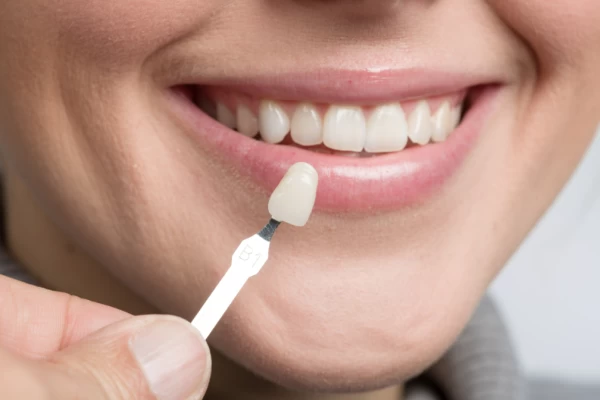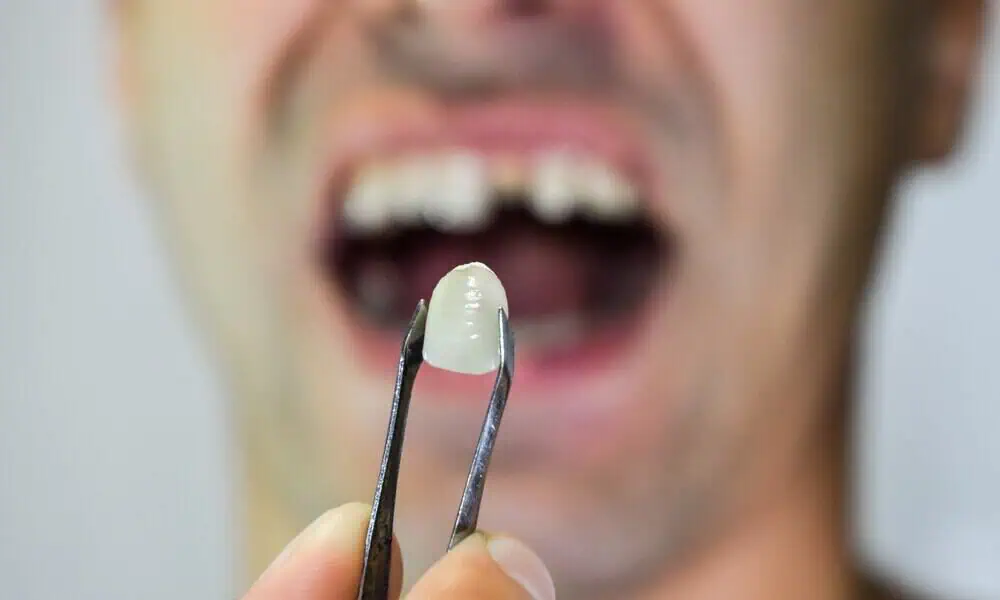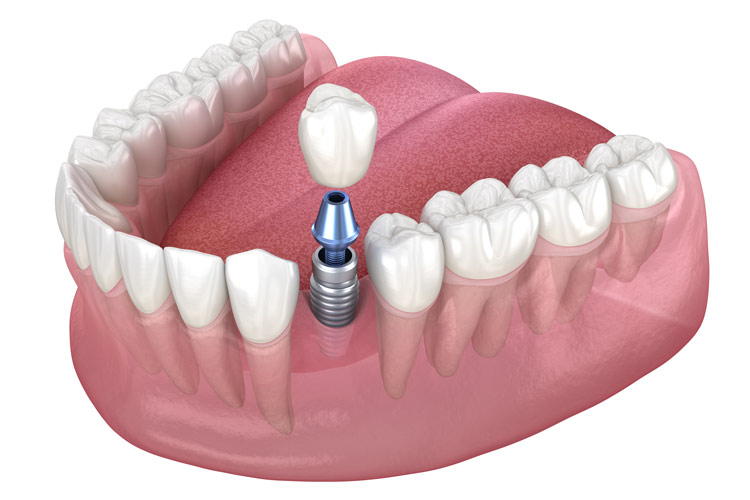Porcelain veneers are an excellent solution for people looking to improve the appearance of their teeth. These thin shells of porcelain are custom-made to fit over the front of your teeth, giving you a natural and beautiful smile. However, like anything else, Porcelain veneers require care and maintenance to ensure they last for many years. If you’re wondering how to take care of your porcelain veneers, you’ve come to the right place. This guide will walk you through everything you need to know about keeping your veneers in top condition.
What Are Porcelain Veneers?
Porcelain veneers are thin, custom-made shells crafted to cover the front surface of your teeth. They can fix various dental imperfections such as discoloration, chips, cracks, and even misalignment. Veneers are durable, but they are not invincible. They require proper care and attention to maintain their appearance and function.
Why Is It Important to Care for Your Veneers?
Caring for your porcelain veneers is essential to ensure that they remain strong and attractive. Neglecting your veneers can lead to problems such as discoloration, chipping, or even complete failure. Just like natural teeth, veneers require consistent maintenance to keep them looking their best and to avoid unnecessary repairs.
Brushing and Flossing Your Veneers
One of the most important steps in caring for your veneers is maintaining a regular brushing and flossing routine. Brushing twice a day and flossing once a day helps to prevent plaque buildup, gum disease, and tooth decay. Use a gentle technique when brushing to avoid putting pressure on the veneers, which could cause them to crack or shift. Proper flossing is equally important to remove food particles and bacteria that can cause plaque to build up around the edges of your veneers.
Avoiding Hard or Sticky Foods
Porcelain veneers are strong, but they are not impervious to damage. Avoid biting into hard objects like ice, popcorn kernels, or hard candies. These can cause your veneers to crack or chip. Sticky foods such as caramel or chewing gum can also cause issues by sticking to your veneers, making it harder to clean them thoroughly and potentially weakening their bond.
Use a Soft-Bristled Toothbrush
When it comes to brushing your porcelain veneers, you want to use a soft-bristled toothbrush. Hard-bristled toothbrushes can scratch the surface of your veneers, causing them to lose their shine and making them more susceptible to stains. A soft toothbrush is gentle on the veneers while still being effective at removing plaque and bacteria.
Regular Dental Checkups

Visiting your dentist regularly for checkups is crucial to maintaining the health of your porcelain veneers. Your dentist will check for signs of damage, decay, or loosening. Regular visits will also ensure that your veneers remain in good condition and that any minor issues are caught early before they become bigger problems.
Avoiding Teeth Grinding
Teeth grinding (bruxism) can be harmful to porcelain veneers, just as it is to natural teeth. If you grind your teeth at night, it can lead to the veneers becoming worn down, cracked, or even dislodged. Talk to your dentist if you have concerns about grinding your teeth. They may recommend wearing a night guard to protect your veneers while you sleep.
Maintaining Proper Oral Hygiene
Maintaining good overall oral hygiene is key to taking care of your veneers. While porcelain veneers themselves are resistant to decay, the natural teeth underneath them are still vulnerable. Make sure you brush your teeth and gums regularly, and avoid letting plaque and bacteria build up, as this can lead to gum disease or damage to the underlying teeth.
Using Non-Abrasive Toothpaste
Not all toothpaste is safe for porcelain veneers. Avoid toothpaste with abrasive ingredients, which can wear down the surface of your veneers over time. Look for toothpaste labeled as non-abrasive or specifically formulated for veneers. These toothpaste options will clean your veneers without damaging their surface or causing dullness.
Protecting Veneers from Stains
While porcelain veneers are resistant to stains, they are not completely immune. Foods and drinks like coffee, tea, red wine, and berries can cause staining over time. To protect your veneers from staining, it’s best to limit consumption of these staining agents. If you do indulge, be sure to rinse your mouth with water afterward.
Be Mindful of Your Habits
Certain habits can also affect the longevity of your porcelain veneers. For example, nail-biting, using your teeth to open packages, or chewing on pens and pencils can place unnecessary stress on your veneers. Be mindful of these habits and try to avoid them to prevent damage to your veneers.
Addressing Any Issues Early On
If you notice any issues with your porcelain veneers, such as discomfort, looseness, or visible damage, contact your dentist as soon as possible. Early intervention can help prevent the problem from worsening and may save you from needing a costly repair or replacement.
Veneers vs. Other Dental Solutions
When considering options for fixing gaps, it is important to compare veneers with other solutions such as:
- Braces: Ideal for significant alignment issues.
- Bonding: A quicker and less invasive option for minor gaps.
- Crowns: Used for more extensive tooth damage or gaps.
- Composite Veneers : Composite veneers are made from tooth-colored resin and can be applied directly to the teeth in a single dental visit. While more affordable than porcelain veneers, they may not offer the same longevity or translucency.
Common Problems with Porcelain Veneers
While porcelain veneers are durable, they are not invincible. Common issues include:
- Chipping or Cracking: Although porcelain is strong, it can crack or chip if subjected to excessive force or pressure.
- Staining: Over time, veneers can develop stains from foods and drinks.
- Loosening: If the bonding material weakens, your veneers may become loose.
If you experience any of these issues, visit your dentist to have them checked and repaired.
Conclusion and Final Tips
Taking care of your porcelain veneers is not difficult, but it does require consistency. Regular brushing, flossing, and visits to the dentist are all important steps in maintaining the health and appearance of your veneers. By avoiding damaging habits, being mindful of what you eat and drink, and addressing any issues early on, you can ensure your veneers last for many years to come.
FAQs
-
Can porcelain veneers be whitened?
No, porcelain veneers cannot be whitened. If you are unhappy with the color, you may need to replace them.
-
Do porcelain veneers stain easily?
Porcelain veneers are resistant to stains, but they can discolor over time due to certain foods and drinks. Proper care can minimize staining.
-
Can I chew on hard foods with porcelain veneers?
It’s best to avoid hard foods, such as ice or hard candies, as they can cause your veneers to chip or crack.
-
How often should I visit my dentist if I have porcelain veneers?
It’s recommended to visit your dentist every six months for regular checkups and cleanings.
-
Can porcelain veneers be repaired if damaged?
Yes, if your porcelain veneers are damaged, your dentist can repair or replace them, depending on the severity of the issue.




